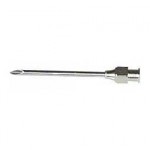
Stainless steel tubing is a versatile material used for structural applications. Widely used throughout numerous industrial sectors, stainless steel tubing sizes and varieties vary considerably depending on the application requirements. It is an exceptional material for builders and manufacturers alike, known for its characteristics like corrosion-resistance, strength, and low-maintenance. Stainless steel tubing’s structural applications call for exact sizing based on the OD (Outside Diameter) and WT (Wall Thickness). The variety of tubing, whether hypodermic, fractional, metric, or square tubing, depends on its specific application requirements.
Types of Stainless Steel Material
As an alloy, all steel consists of iron and carbon. However, it is a minimum of 10.5% chromium content by mass that makes stainless steel “stainless” (corrosion resistant) and gives it its name. Stainless steel’s many grades, or varieties, are determined by the addition of other alloys. Depending on the application, stainless steel may also contain varying elements such as silicon, manganese, nickel, titanium, aluminum, copper, nitrogen, phosphorous, selenium, molybdenum, and increased chromium levels. The different alloy compositions give different physical characteristics to the material to enhance its mechanical properties. The grade selected may relate to the degree of corrosion of the application’s service environment. For example, grade 316 has increased levels of molybdenum in the overall composition to increase the corrosion-resistant properties of the material and also its strength in elevated temperatures. Grade 316 applications include heat exchangers and automotive exhaust systems.
How is Stainless Steel Tubing Measured?
Because stainless steel tubing applications are used for structural purposes, the sizing must be an exact number. In nearly all instances, sizes are specified by the OD and the wall thickness (WT) of the tube. The measured OD and stated OD have very close if not exact tolerances to each other. Therefore, a one-inch tube will have a one-inch OD with a WT to specifications. Though its ID (Inside Diameter) becomes smaller as the wall thickness increases, it does not factor into the tube’s measurement.
Differences in Stainless Steel Tubing
Different types of tubing have different measurement protocols. See below for more info on how stainless tubes are sized depending on the type.
Hypodermic
 Hypodermic stainless steel tubes are found in a variety of medical and industrial applications. As the name implies, this particular type of tubing is known for its ease of cleanliness but also use. Most hypodermic needles are made of grade 304 stainless steel tubing, which allows for thin wall tubing that can be beveled and deburred to create a high-quality finish. Blunt needles used to pump tires, rafts, balls, and other inflatable equipments are also made from hypodermic stainless steel tubing. In addition, hypodermic tubing is measured differently than other stainless steel tubing. Size is determined by the gauge of the outside diameter and the inside diameter of the tube and ranges from 3 gauge to 33 gauge.
Hypodermic stainless steel tubes are found in a variety of medical and industrial applications. As the name implies, this particular type of tubing is known for its ease of cleanliness but also use. Most hypodermic needles are made of grade 304 stainless steel tubing, which allows for thin wall tubing that can be beveled and deburred to create a high-quality finish. Blunt needles used to pump tires, rafts, balls, and other inflatable equipments are also made from hypodermic stainless steel tubing. In addition, hypodermic tubing is measured differently than other stainless steel tubing. Size is determined by the gauge of the outside diameter and the inside diameter of the tube and ranges from 3 gauge to 33 gauge.
Fractional/Metric/Square

Fractional, metric and square stainless steel tubing is measured by its OD and wall thickness. Fractional tubing generally consists of 304 or 316-grade stainless steel material, for applications that require good strength and high corrosion resistance. Metric stainless steel tubing is used for high-pressure hydraulic and pneumatic applications, with sizes ranging from 1 mm OD / .254 mm Wall (.040” OD / .010”) to 26 mm OD / 1.32 mm Wall (1.024” OD .052”). Stainless steel square tubing is used in a number of domestic and commercial applications for its additional mechanical properties. It’s valued for its strength and architectural appeal, and can withstand extreme environmental conditions.
Stainless Tubing vs Piping
It’s important to note that stainless steel tubing is often confused with stainless steel piping. However, piping is not used for structural applications, but for transporting gases and fluids. Its sizing requirements are not as stringent as tubing, but in general, nominal, i.e., approximate. Learn more about the functional difference in our blog on stainless steel tubing vs piping.
The use of stainless steel tubing is nearly as varied as the number of stainless steel alloys. Factories, mills and production lines not only use machines made from stainless steel components, but manufacture products made of stainless steel. Though thoughts of tubing may offer circular images, in fact, tubing comes in many shapes, sizes and thicknesses. Round, oval, rectangular or square, stainless steel tubing is versatile and popular. The many mechanical properties it offers make it a choice material for countless commercial, industrial, and manufacturing applications worldwide.




